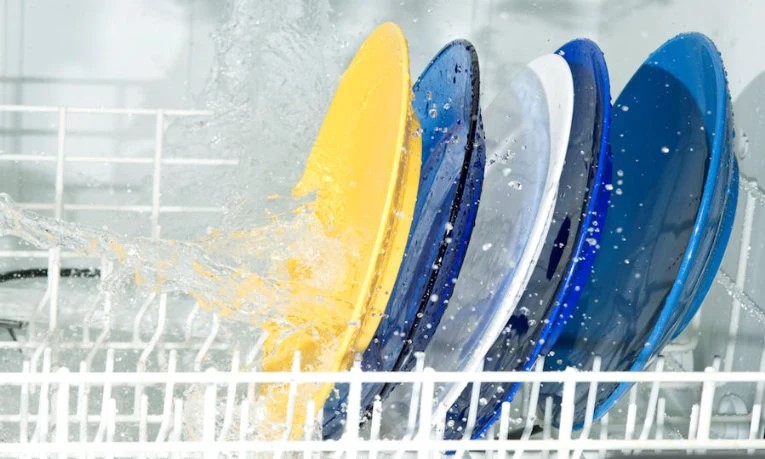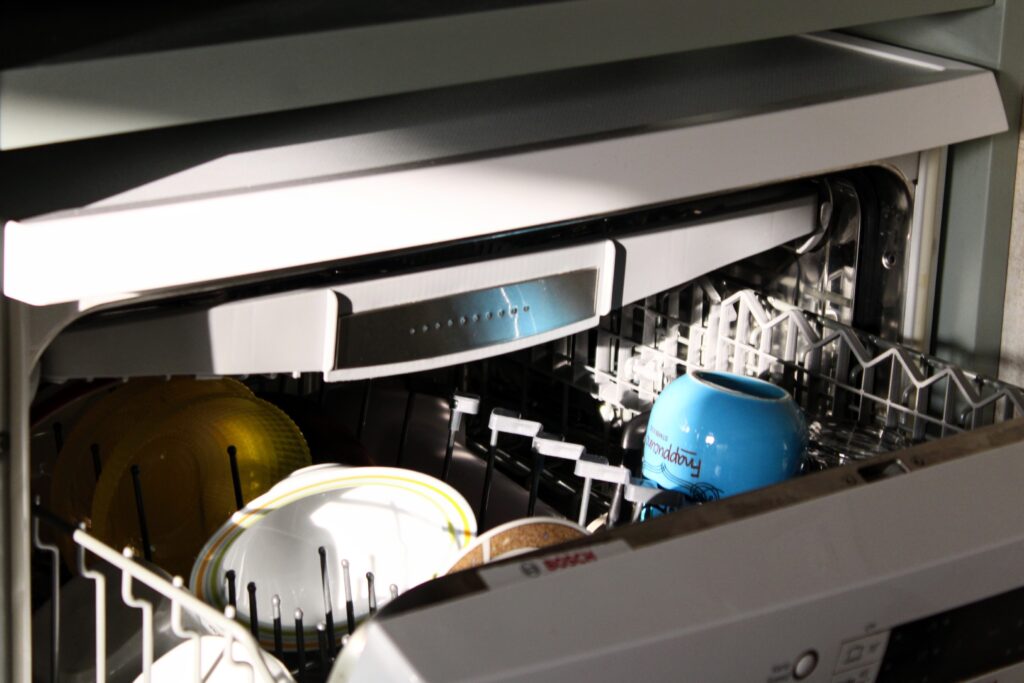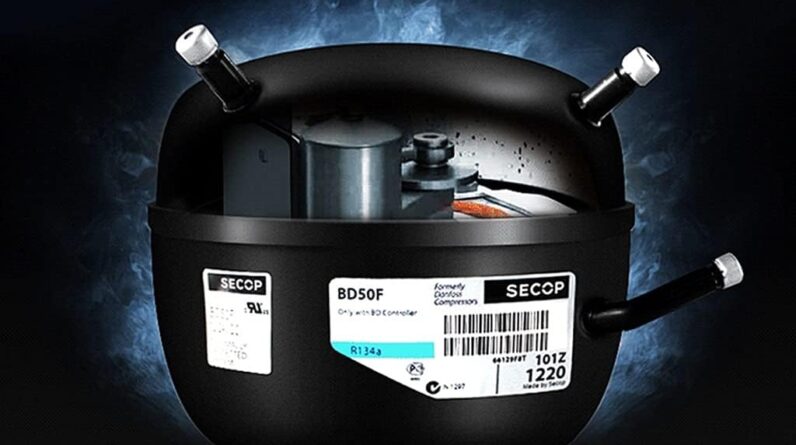
Are you in the market for a new dishwasher but want to make an environmentally-conscious choice? Look no further! This article is here to guide you in selecting an eco-friendly dishwasher that will not only clean your dishes effectively but also reduce your carbon footprint. With various options available in the market, making the right choice can be overwhelming. Fear not! We have compiled a comprehensive guide that will help you make an informed decision and contribute to a greener future. So, let’s dive in and explore the world of eco-friendly dishwashers!

This image is property of www.thespruce.com.
1. Consider Energy Star Certification
1.1 What is Energy Star Certification?
When shopping for an eco-friendly dishwasher, one of the first things you should consider is Energy Star certification. Energy Star is a program developed by the Environmental Protection Agency (EPA) and the Department of Energy (DOE) that aims to promote energy efficiency in household appliances. By choosing a dishwasher with Energy Star certification, you can be confident that it meets strict energy efficiency guidelines set by these organizations.
1.2 Benefits of Energy Star Certification
Opting for a dishwasher with Energy Star certification comes with several benefits. Firstly, these appliances are designed to use less water and energy, which not only helps you save money on utility bills but also reduces your environmental footprint. On average, Energy Star certified dishwashers use about 12% less energy and 30% less water compared to non-certified models. Additionally, these dishwashers often have innovative features that enhance performance and make them more user-friendly.
2. Water Efficiency
2.1 Look for Dishwashers with Low Water Usage
Water efficiency is an essential aspect to consider when selecting an eco-friendly dishwasher. Look for models that specifically mention low water usage in their specifications. These dishwashers are designed to use less water per cycle, thus conserving this precious resource. Dishwashers that offer different water-saving modes or sensors that automatically adjust the water usage based on the load size are especially ideal.
2.2 Efficient Spray Arms and Water Jets
Efficiency in water distribution is another key factor to keep in mind. Dishwashers equipped with efficient spray arms and water jets ensure that water is evenly distributed and effectively reaches all the dishes. This not only improves cleaning performance but also minimizes the need for added water or additional cycles. Look for dishwashers with well-designed spray arms and adjustable water jets to optimize water usage.

This image is property of www.tru.earth.
3. Energy Efficiency
3.1 Energy-efficient Sensors and Controls
To further enhance energy efficiency, consider dishwashers that feature intelligent sensors and controls. These sensors detect the soil level on the dishes and adjust the cycle length and water temperature accordingly. By doing so, they minimize unnecessary energy consumption and still provide a thorough cleaning. Energy-efficient controls, such as delayed start or eco-cycle options, allow you to customize the dishwasher’s operation based on your specific needs, conserving energy in the process.
3.2 Insulation for Heat Retention
Insulation plays a vital role in energy efficiency as well. Look for dishwashers with good insulation to retain heat during the washing and drying cycles. Effective insulation helps reduce the amount of energy required to heat the water, resulting in lower energy consumption. Additionally, it helps to reduce noise levels and keep the exterior of the dishwasher cool to the touch.
4. Material Selection
4.1 Opt for Dishwashers Made from Recyclable Materials
When it comes to sustainability, considering the materials used in the dishwasher’s construction is crucial. Look for dishwashers that are made from recyclable materials, such as stainless steel or plastic that can be recycled. Opting for appliances that are manufactured using recyclable materials can help minimize waste and support the recycling industry.
4.2 Avoid Dishwashers with Harmful Chemicals
Pay attention to the chemicals and materials used in the dishwasher’s interior, such as the tub and racks. Avoid dishwashers that contain harmful chemicals like polyvinyl chloride (PVC) or bisphenol A (BPA), as these substances can negatively impact the environment and potentially pose health risks. Instead, choose dishwashers that are made with non-toxic materials that are safe for both you and the environment.

This image is property of ecozone.com.
5. Size and Capacity
5.1 Assess Your Dishwashing Needs
Before purchasing a dishwasher, take some time to assess your dishwashing needs. Consider the size of your household and the average number of dishes you generate per meal. This will help you determine the appropriate capacity and size of the dishwasher you require. Choosing a dishwasher that fits your needs ensures that it operates efficiently and avoids unnecessary energy and water waste.
5.2 Consider the Size of the Dishwasher
In addition to considering your dishwashing needs, don’t forget to assess the available space in your kitchen. Measure the dimensions allocated for the dishwasher and ensure that the model you choose fits comfortably into the designated area. Opting for a dishwasher that fits well in your kitchen not only enhances the overall aesthetics but also reduces the need for additional modifications or construction, which can also lead to waste.
6. Noise Level
6.1 Look for Quiet Dishwashers
If noise level is a concern for you, especially in an open-concept living space, be sure to choose a dishwasher that is known for its quiet operation. Look for models that specifically mention low-noise performance or have noise ratings listed in the specifications. Quiet dishwashers are designed with special insulation, sound-dampening technologies, and quiet motors to minimize noise disruption in your home.
6.2 Noise Reduction Features
In addition to the overall noise level, consider dishwashers that offer noise reduction features. Some models include features like a quiet mode or a silent setting that further reduces operating noise. These features allow you to run the dishwasher even during quiet or sleeping hours without disturbing your household.

This image is property of www.ifixutah.com.
7. Eco-Friendly Detergents
7.1 Choose Environmentally Friendly Dishwashing Detergents
To complement your eco-friendly dishwasher, it’s important to select environmentally friendly dishwashing detergents. Look for detergents that are labeled as environmentally friendly or eco-friendly. These detergents are typically free from harsh chemicals, synthetic fragrances, and phosphates that can harm aquatic ecosystems. Opting for eco-friendly detergents not only protects the environment but also ensures the safety of your dishes and the health of your family.
7.2 Biodegradable and Phosphate-Free Detergents
If possible, choose dishwashing detergents that are biodegradable and phosphate-free. Biodegradable detergents are designed to break down quickly after use, reducing their impact on the environment. Phosphate-free detergents are essential as phosphates can contribute to water pollution and the growth of harmful algal blooms. By selecting detergents that are biodegradable and phosphate-free, you can contribute to a healthier and more sustainable ecosystem.
8. Longevity and Maintenance
8.1 Consider the Lifespan of the Dishwasher
When investing in an eco-friendly dishwasher, durability and longevity are important factors to consider. Look for models from reputable brands known for their quality and reliability. Reading customer reviews and checking for warranties can also provide insight into a dishwasher’s expected lifespan. Opting for a dishwasher that is built to last ensures that you won’t need to replace it frequently, reducing waste and minimizing your environmental impact.
8.2 Easy Maintenance and Repair Options
In addition to lifespan, consider the ease of maintenance and availability of repair options for the dishwasher you choose. Look for models that have easily replaceable parts and accessible filters or drain systems. Having easy access to maintenance and repair services, as well as readily available spare parts, can extend the life of your dishwasher and reduce the need for premature replacements.

This image is property of sp-ao.shortpixel.ai.
9. Warranty and Customer Support
9.1 Check for Comprehensive Warranty
Before finalizing your purchase, make sure to check the warranty details provided by the manufacturer. A comprehensive warranty offers protection and peace of mind, ensuring that any potential issues with the dishwasher are covered. Look for warranties that cover both parts and labor for a reasonable duration. It’s also beneficial to understand the warranty terms and conditions, as some warranties may require specific maintenance or usage criteria to remain valid.
9.2 Reliable Customer Support
In addition to a warranty, reliable customer support is crucial when selecting an eco-friendly dishwasher. Look for brands that are known for their responsive and helpful customer service. Being able to reach out for assistance, troubleshooting, or even spare parts can help ensure a smooth ownership experience. Reliable customer support can also provide guidance on maintenance and usage best practices, helping you maximize the lifespan and efficiency of your dishwasher.
10. Price Range
10.1 Determine Your Budget
Finally, it’s important to determine your budget before embarking on your search for an eco-friendly dishwasher. Setting a budget helps narrow down your options and ensures that you’re making a financially sound decision. Consider your priorities and the long-term cost savings that an energy-efficient dishwasher can provide. While eco-friendly dishwashers may come with a higher upfront cost, they often offer reduced energy and water usage, leading to savings over time.
10.2 Compare Prices and Features
Once you have determined your budget, take the time to compare prices and features of different eco-friendly dishwashers within your price range. Consider the specifications, energy efficiency ratings, and additional features offered by each model. Don’t forget to also read customer reviews to gauge real-world performance and reliability. By comparing prices and features, you can make an informed decision and find the eco-friendly dishwasher that best suits your needs and budget.
In conclusion, selecting an eco-friendly dishwasher involves considering various factors such as Energy Star certification, water and energy efficiency, material selection, size and capacity, noise level, eco-friendly detergents, longevity and maintenance, warranty and customer support, and price range. By carefully evaluating each aspect and prioritizing your needs, you can make a well-informed and environmentally conscious choice that not only benefits the planet but also enhances your dishwashing experience.





